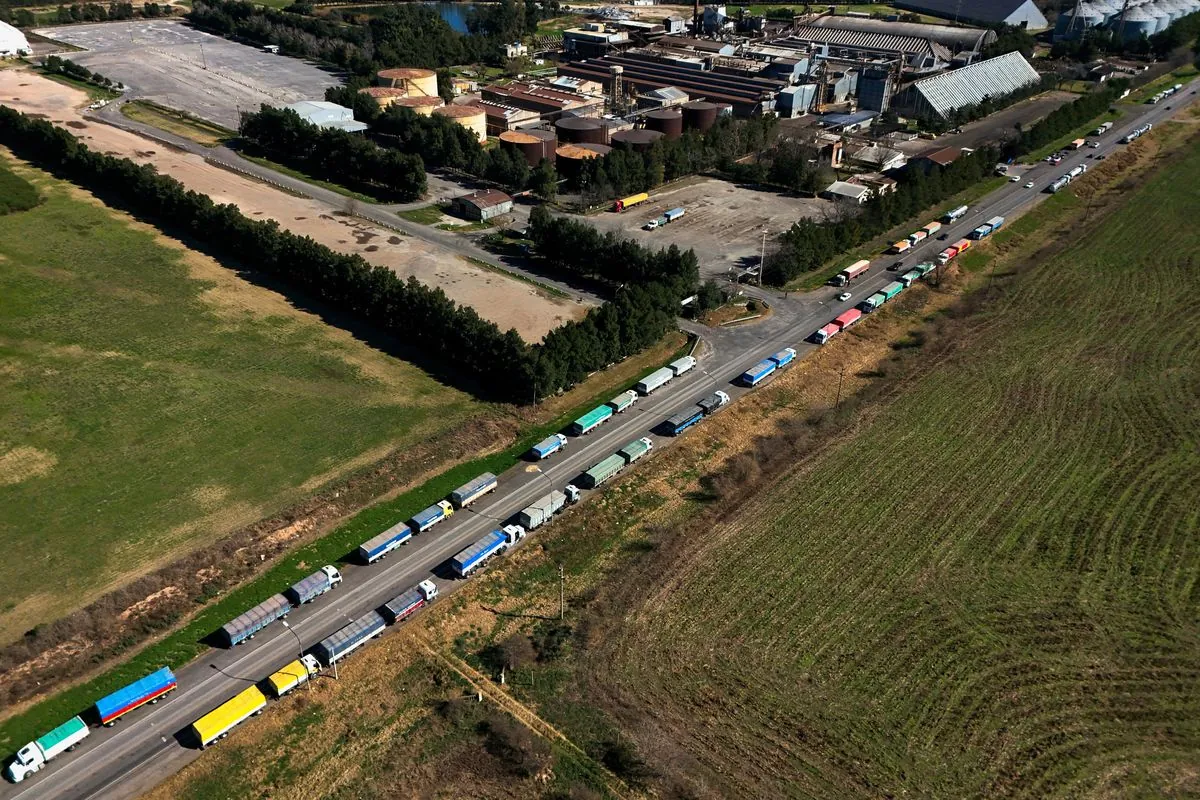Argentine Government Halts Oilseed Workers' Strike, Impacting Grain Exports
Argentine authorities order 15-day suspension of oilseed workers' strike, affecting grain exports. One union agrees to comply, while economic concerns loom over the country's vital agricultural sector.

In a significant development for Argentina's agricultural sector, the government has mandated a 15-day suspension of the ongoing oilseed workers' strike, which began on August 6, 2024. This labor action has severely impacted grain exports from one of the world's leading agricultural producers.
Argentina, the third-largest exporter of corn and soybeans globally, relies heavily on its agricultural sector, which contributes nearly 10% to the country's GDP. The strike has primarily affected terminals north of Rosario along the Paraná River, the second-longest river in South America after the Amazon. Rosario's port complex, handling approximately 80% of Argentina's agricultural exports, has been particularly affected.
The San Lorenzo Department Oilseed Workers and Employees Union (SOEA) has confirmed its compliance with the government order. Martin Morales, SOEA's secretary, stated, "We abide by the reconciliation (talks). Little by little and in an orderly manner we will lift the measure." However, the response from the Federation of Oilseed Industry Workers, the other union involved, remains pending.

The strike's primary motivation stems from workers' demands for salaries that keep pace with Argentina's soaring inflation rate, which reached a staggering 114.2% year-on-year in July 2023. This chronic high inflation has plagued the country for over a decade, contributing to its ongoing economic challenges.
The labor action has caused significant disruptions, with at least three dozen ships delayed near Rosario. This situation is particularly concerning for Argentina, the world's largest exporter of soybean meal and soybean oil. In 2022, the country's agricultural exports were valued at $41.4 billion, underscoring the sector's crucial role in the economy.
Argentina's government is keen to resolve this dispute quickly, as the country heavily relies on foreign exchange from grain exports to bolster its dwindling central bank reserves, which hit a 17-year low in July 2023. The nation has been grappling with a recession since 2018 and has a history of nine sovereign debt defaults since independence.
Mandatory talks between the parties are scheduled for August 14, 2024, at 11 a.m. (1400 GMT). The outcome of these negotiations will be crucial for Argentina's agricultural sector, which employs about 7% of the workforce across over 310,000 farms, with an average size of 588 hectares.
As a member of the Mercosur trade bloc alongside Brazil, Paraguay, and Uruguay, Argentina's ability to maintain its agricultural export capabilities is vital not only for its own economy but also for regional trade dynamics. The resolution of this labor dispute will be closely watched by international markets, given the country's significant role in global soybean, corn, wheat, and beef exports.


































